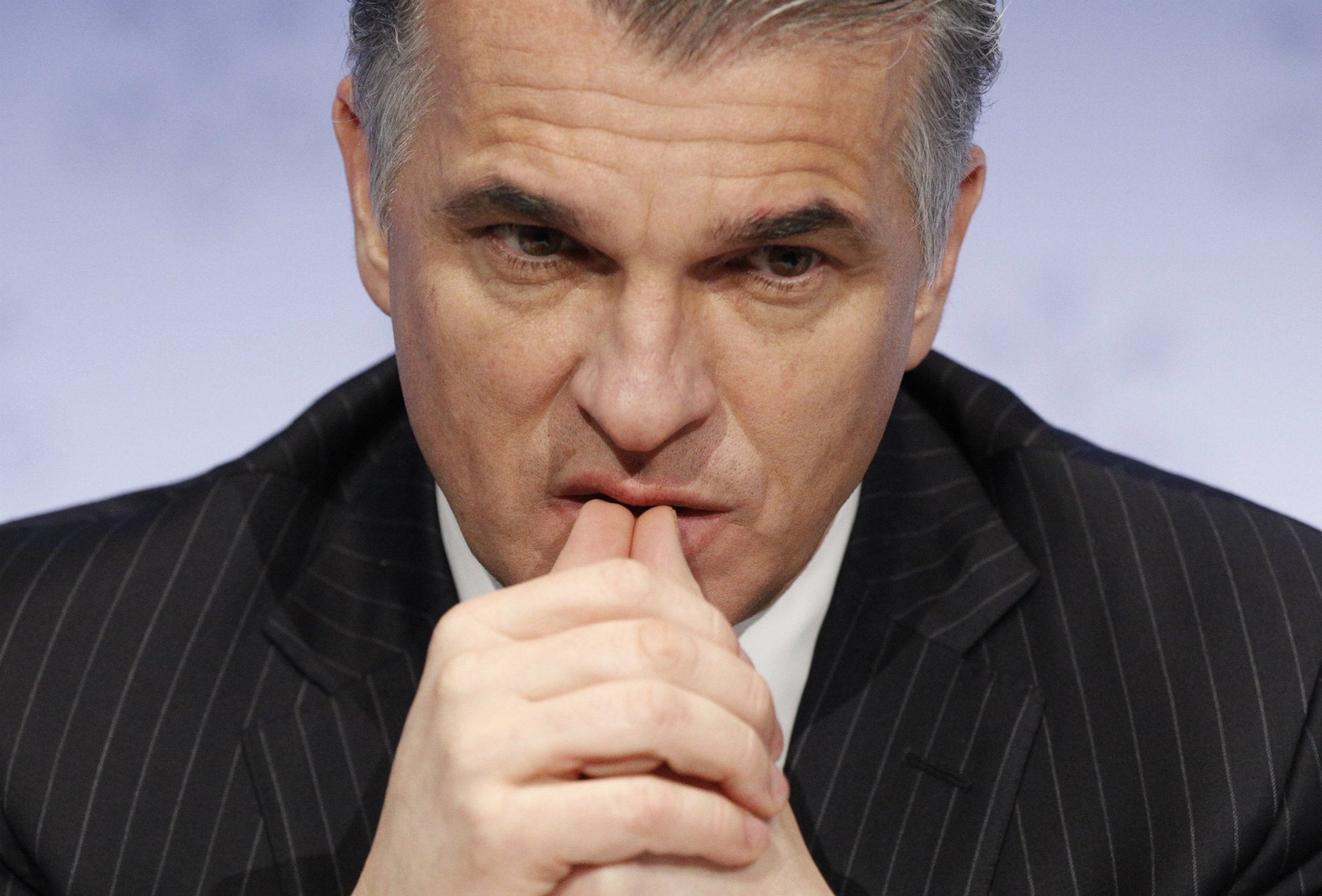UBS CEO urges bankers to take more risks
Sergio Ermotti, the CEO of UBS, sounded a bit like a new age parent in a speech to a group of 300 executives in Zurich this week.


Sergio Ermotti, the CEO of UBS, sounded a bit like a new age parent in a speech to a group of 300 executives in Zurich this week.
His message to managers and employees? Take risks! Make mistakes–as long as they are honest mistakes! According to the Financial Times, he said there should be a “degree of tolerance” for mistakes because banks can’t make money if bankers are too cautious.
It’s a sign of the times that bank bosses have to remind their employees to take risks; reigning in risk-taking has been the prevalent theme in recent years.
Since 2009, banks have paid $260 billion for misdeeds ranging from rigging foreign exchange markets to tampering with benchmark interest rates and selling bogus insurance. They still have $65 billion to go, Morgan Stanley estimates.
Ermotti is not known for being soft-spoken (few bank CEOs are). He declared in Davos in 2014 that the time for banker-bashing was over.
“Life is hard enough, and I think this constant lecturing on ethics and on integrity by many stakeholders is probably the most frustrating part of the equation. Because I don’t think there are many people who are perfect,” Mr. Ermotti told The Wall Street Journal (paywall). “We are far from being perfect…but it’s not going to be very helpful to be constantly bashing banks.”
Ermotti isn’t the first bank executive to raise the alarm that banks are being too cautious. In August, HSBC chairman Douglas Flint warned of a growing danger that employees were becoming too risk-averse. (It should be noted that both HSBC and UBS have paid tens of billions in fines around the world.)
The financial crisis made bankers easy targets for politicians of every stripe and color. Even the archbishop of Canterbury had a go at them, saying UBS had been “corrupted” following one of its major fines (£940 million for rigging interest rates) and noting that there was “scarcely a bank” not caught up in the maelstrom.
That was then. The time out is over, and it’s time to play again.